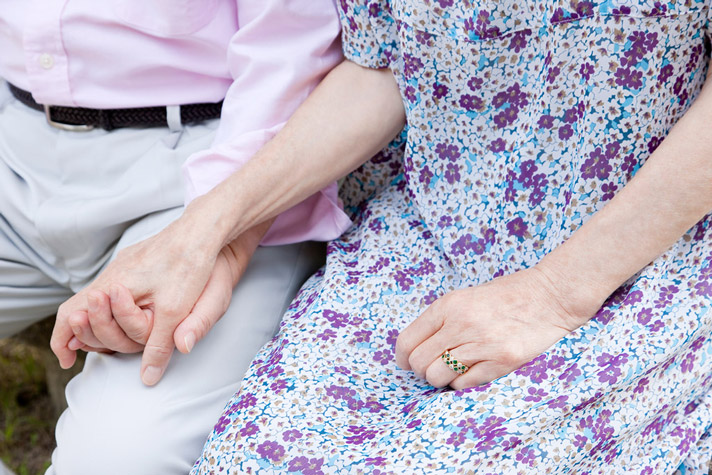Your Parents

Grandparents are in a unique situation, for they feel the death of their grandchild intensely. For them it can be ‘a double grief’ – grief for you, their child, and grief for their grandchild. They, too, have looked forward so much to this new relationship and now it has been taken from them. Their own relationships could be affected in similar ways to yours and they, like you, can feel very alone in their grief. Being unable to fix it, like they could when you were small, can be very frustrating. It is easy for them to lose confidence in themselves, feeling that whatever they do or say isn’t enough or is inappropriate. Some grandparents describe this as ‘constantly walking on eggshells’, feeling that whatever they did wasn’t enough. They, too, could become more fearful, over-protective or ever permissive with your other children.
“It took me a long time to acknowledge my husbands’ grief, let alone the grief of others in the family such as the grandparents.” (Paula)
“My father is not the same since Catharine died and this is another loss for me.” (Erica)
“I withdrew from my parents. Their pain was too much. My mother lost her only granddaughter and was in such pain but could see the great pain in me as well.” (Jane)
“My daughter needed me there but hardly spoke to me. I just wanted to hold her and tell her I loved her but I wasn’t allowed.” (Marilyn, grandparent)
“Bereaved people become like fifteen year olds. I know not to depend on them. They have nothing to give so I needed to meet my own needs and seek my own supports. Support was one way, not reciprocal.” (Annette, grandparent)
“It was a loss of hopes and dreams and a loss of innocence and trust in the world. Love for a subsequent child doesn’t come naturally. You have a fear of further loss. You become over-protective and hate the responsibility.” (Nerida, grandparent)
Your parents will probably have experienced earlier deaths, so the death of your child can bring up issues with which they have never dealt or have not thought about for a long time.
In these circumstances you might receive less support and have to accept their diminished capacity to help you. Indeed, they could need your support. While this might be very difficult, sharing the grief can have benefits.
“We become aware of the coping mechanisms of my parents and realised how the death impacted on them. The relationship didn’t change much. Both families were very supportive, although sometimes too close and at others not close enough. They did the best they could for us. They gave us space to grieve.” (Jenny R)
“My mother’s parents died when she was a teenager. It helped us both to talk about it. Know that your child’s death will bring up issues for others and help them to talk.” (Linda B)
Helping them
While it is very important to understand your parents’ situation, you will need to be patient with them, given that you are barely able to function yourself. Sometimes, when one’s grief feels so overwhelming, there is no room to left to support others. Red Nose Grief and Loss offers bereavement support to grieving grandparents. Reading more about grief can help you to understand your parents’ responses as well as your own. The Grandparent section of this website and the Red Nose Grief and Loss Grandparent booklet Grandparent to Grandparent are valuable resources for both you and your parents. Here are some of its key suggestions:
- It helps if grandparents get some support, such as joining a group, for example, talking to other bereaved grandparents, and reading about the grief of parents, children and grandparents.
- Grandparents often will feel helpless and that they cannot ‘fix things’, but it is important for them to listen, not give advice or expect to fully understand. Encourage grandparents to help in a practical way, for example shopping, cooking meals and taking care of the other children; it will help both of you.
- Suggest to grandparents that acknowledging the death, particularly on special days such as anniversaries, and mentioning the child’s name, is very important. Having your child forgotten would be a further loss for you.
This article was prepared using extracts from When Relationships Hurt, Too.1 The full text is available online or contact Red Nose Grief and Loss Services on 1300 308 307 for a printed version.
Last reviewed: 18/9/25
Share
1. den Hartog, P.N., Bereaved Parents & SIDS and Kids NSW and Victoria (2014). When Relationships Hurt, Too: The Impact of Grief on Parents’ Relationships after the Sudden Death of their Child. , Malvern, Vic.: SIDS and Kids NSW and Victoria.



